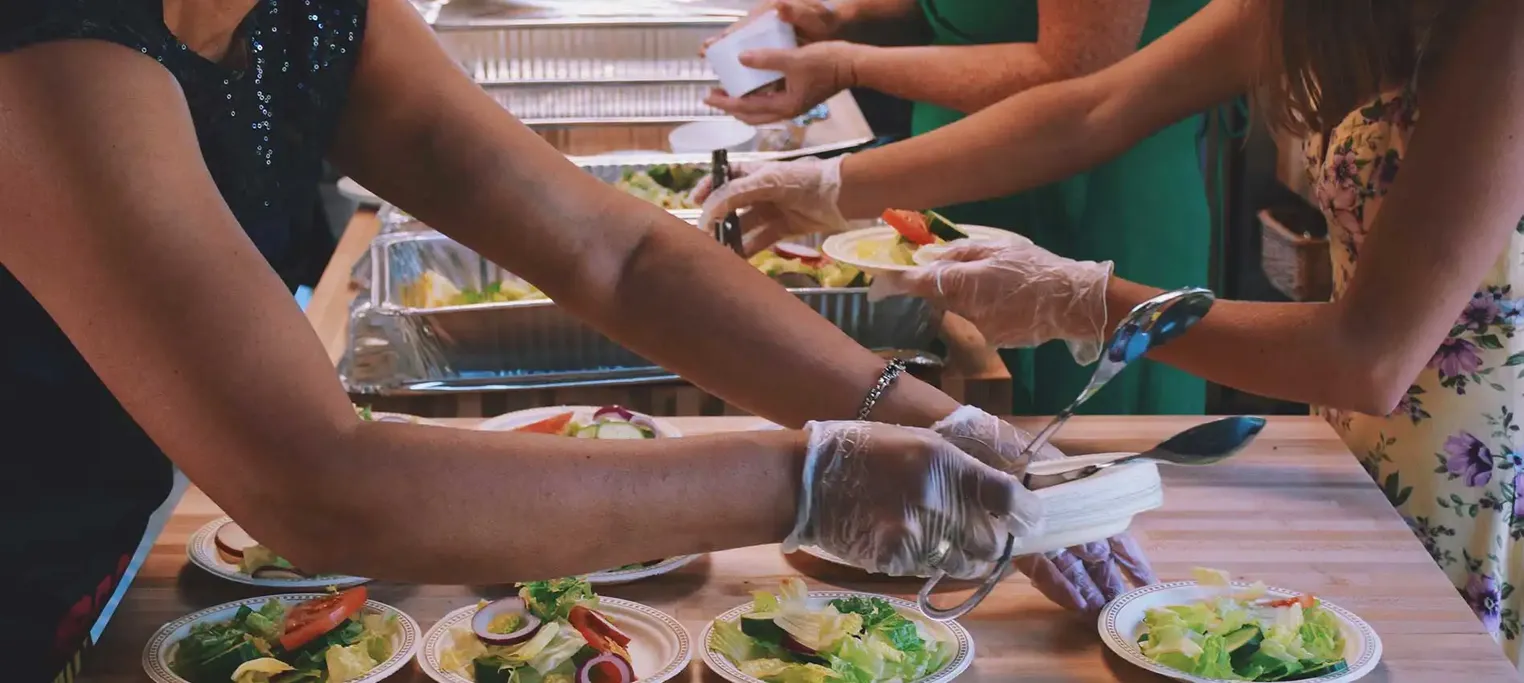May 14, 2021
Volunteer and be healthier and happier!

Each year around six million Aussies spend time volunteering.1 We see volunteers all around us –prepping food for people experiencing homelessness or financial stress, coaching at the local football club, getting involved in school working bees, or helping out at an animal sanctuary.
And, while the link between substance use and volunteering may not be obvious, we know getting involved in your community is a great way to prevent or reduce harmful alcohol and other drug use.2, 3
Alcohol, drugs and volunteering – what’s the link?
There are many influences, known as protective factors, which can prevent or reduce the possibility of harmful alcohol or other drug use. These include positive family relationships, education and getting involved in sport.2
So, why is volunteering a protective factor?
Volunteering increases a person’s connection to their community, with studies showing that up to 42% of volunteers are more likely to describe themselves as ‘very happy’ than non-volunteers.4
Not only are volunteers happier, they’re also healthier!5 According to the United Nations Volunteers Programme, 76% of people who volunteered in the last 12 months believed they were healthier as a result.6
And, people with healthier lifestyles and positive mental health are less likely to use substances.2, 7, 8, 9
Why else should we volunteer?
When you volunteer, not only do you help others in the community, but there are also a lot of extra benefits such as:
- a sense of purpose
- making new friends
- gaining work experience
- professional networking
- developing new skills. 10, 11, 12
There’s considerable evidence that developing new life skills is a protective factor against substance use. Developing skills gives us confidence, encourages healthier lifestyles and provides people with positive stress management strategies. 13, 14
A foot in the door
For those of us wanting to try out different jobs, or who want to get a foot in the door, volunteering can also increase the likelihood of employment.15
We also know that being employed and your socioeconomic status can affect individual health outcomes, including reducing drug and alcohol-related harm. 16, 17
Volunteering and young people
For young people, volunteering is a great activity to distract from risk taking and harmful behaviours, such as alcohol use. When people are involved in youth groups or sports clubs, they’re less likely to engage in substance use, particularly frequent or heavy alcohol consumption.18, 20
In Australia, state and federal governments fund many community-based projects to divert young people from substance use.19 This includes The Alcohol and Drug Foundation’s Local Drug Action Team program and the Good Sports program.
Let’s celebrate our volunteers in 2021
National Volunteer Week is an annual celebration to say thank you to the enormous contribution of Australia’s volunteers.
From 17–23 May 2021, events are held across the country.
This year’s theme is Recognise. Reconnect. Reimagine.
So, together let’s:
- recognise, celebrate and thank volunteers for the vital role they play in our lives
- reconnect to what is important by giving our time to help others and ourselves
- reimagine how we better support volunteers and communities they help.
To find volunteering opportunities in your local community, visit Go Volunteer.
For information on volunteering in community alcohol and drug prevention, contact your Local Drug Action Team.
- Welfare. AIoHa. Volunteering 2019 [03.05.2021]. Available from: https://www.aihw.gov.au/reports/australias-welfare/volunteers.
- Loxley W et al. he Prevention of Substance Use, Risk and Harm in Australia: a review of the evidence. Canberra 2004.
- Communities that Care. Risk and Protective factors n.d. [30.04.2021].
- University of Sydney. 7 surprising benefits of volunteering 2017 [4.05.2021].
- Konrath S Fuhrel-Forbis A Lou A & Brown S. Motives for volunteering are associated with mortality risk in older adults. Health Psychology. 2012;31(1):87-96.
- Leigh R et al. State of the World’s Volunteerism Report Universal Values for Global Well-being 2011.
- Degenhardt L et al. The associations between psychotic experiences and substance use and substance use disorders: findings from the World Health Organization World Mental Health surveys. Addiction. 2018;113(5).
- Bond L Toumbourou J Thomas L Catalano R & Patton G. Individual, family, school, and community risk and protective factors for depressive symptoms in adolescents: a comparison of risk profiles for substance use and depressive symptoms. Prevention Science. 2005;6(2).
- Shelton M & Finnegan D. Fundamentals of LGBT Substance Use Disorders 2017.
- The Organisation for Economic Co-operation and Development. How's Life? 2020 Measuring Well-being 2020
- Volunteering Victoria. Benefits of volunteering 2021 [30.04.2021].
- The Centre for Volunteering. Steps to Volunteering 2019 [30.04.2021].
- Moshki M Hassanzade T & Taymoori P. Effect of Life Skills Training on Drug Abuse Preventive Behaviors among University Students. Journal of Preventative Medicine. 2014;5(5).
- Sancassiani F et al. Enhancing the Emotional and Social Skills of the Youth to Promote their Wellbeing and Positive Development: A Systematic Review of Universal School-based Randomized Controlled Trials11. Clinical Practice and Epidemiology in Mental Health. 2015;11.
- Spera C Ghertner R Nerino A & DiTommaso A. Volunteering as a pathway to employment: does volunteering increase odds of finding a job for the out of work? ; 2013.
- Katikireddi S Whitley E Lewsey J Gray L & Leyland A. Socioeconomic status as an effect modifier of alcohol consumption and harm: analysis of linked cohort data. Lancet Public Health. 2017;10(2).
- Erskine S Maheswaran R Pearson T & Gleeson D. Socioeconomic deprivation, urban-rural location and alcohol-related mortality in England and Wales. BMC Public Health. 2010;10.
- Eisman A Lee D Hsieh H Stoddard S & Zimmerman M. More Than Just Keeping Busy: The Protective Effects of Organized Activity Participation on Violence and Substance Use Among Urban Youth. Journal of Youth and Adolescence. 2018;10.
- Australian Government. National Alcohol Strategy. 2019.


